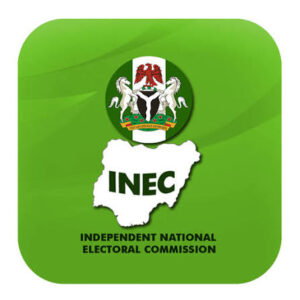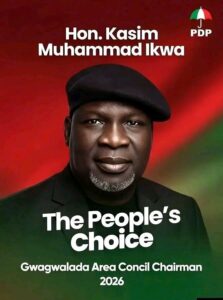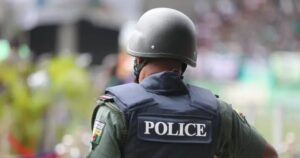In response to the worst flood Borno State has witnessed in over 30 years, Governor Babagana Zulum has established a high-level committee to ensure proper management and distribution of relief funds and aid. The flood, triggered by heavy rains that caused the Alau Dam to overflow, has left over 414,000 people displaced and resulted in the tragic loss of lives. The disaster has left communities in dire need of relief, prompting the governor to act swiftly.
Governor Zulum’s immediate priority was to create a committee that would manage the disbursement of relief funds with full transparency. The committee, chaired by Baba Gujubawu, the Special Adviser on Monitoring and Evaluation, and co-chaired by Professor Ibrahim Umara of the University of Maiduguri, includes representatives from several key institutions. This includes top anti-corruption and security agencies, such as the Economic and Financial Crimes Commission (EFCC), the Independent Corrupt Practices and Other Related Offences Commission (ICPC), and the Department of State Services (DSS).
By involving these agencies, the governor aims to ensure that no mismanagement or diversion of funds takes place. Given the scale of the disaster, the relief efforts are expected to require significant resources, and transparency is critical to ensure that these resources are properly directed.
In addition to the EFCC, ICPC, and DSS, the committee also includes members from Civil Society Organizations (CSOs), which play a vital role in ensuring that the voices of affected communities are heard. The Nigeria Union of Journalists (NUJ) is also represented to provide public oversight through responsible media reporting. Religious groups such as the Jama’atul Nasril Islam (JNI) and the Christian Association of Nigeria (CAN) have been invited to the table, ensuring that the process is inclusive and reflective of Borno’s diverse population.
One of the most notable members of the committee is His Royal Highness, the Shehu of Borno, who represents the traditional leadership of the state. His involvement is crucial for mobilizing local support and ensuring that the committee’s decisions have the backing of community leaders.
Governor Zulum has emphasized that the committee’s work must be done with the highest levels of integrity. The flood has devastated many communities, and the proper distribution of relief can significantly affect the speed of recovery for affected residents. Addressing the committee, the governor urged its members to maintain the trust placed in them by the people and to distribute the aid as fairly and efficiently as possible.
In his statement, Governor Zulum noted, “This committee has been entrusted with a great responsibility, and we expect you to carry out your duties with full dedication and commitment. The people of Borno have suffered greatly from this disaster, and it is our duty to ensure that every penny of the relief funds reaches those who need it most.”
The flood has not only drawn local attention but also international support. The International Organization for Migration (IOM), backed by $3 million in funding from the United States Agency for International Development (USAID), is providing critical assistance to flood victims across Borno and other flood-hit areas in Nigeria. USAID’s funding will help in distributing essential supplies such as shelter materials, food, and clean water, and supporting health interventions for affected communities.
In addition to the IOM, the United States Government has also increased its humanitarian efforts, focusing on assisting thousands of people displaced by the floods in Maiduguri and surrounding areas. This international collaboration ensures that Borno State receives not only financial support but also technical assistance from agencies experienced in disaster response and recovery.
The flooding has had a far-reaching impact on the people of Borno, particularly those in rural areas who depend on farming for their livelihood. The overflow of the Alau Dam, compounded by heavy rainfall, flooded farmlands, destroyed homes, and swept away livestock. These losses have severely affected the local economy, creating an urgent need for not only immediate relief but also long-term recovery plans.
According to the National Emergency Management Agency (NEMA), the floods of this year have been the most devastating in three decades. The immediate focus is on providing shelter, food, and medical care to displaced families, but experts warn that rebuilding the affected areas will be a long-term process that requires sustained effort from both local and international stakeholders.
While the initial focus is on emergency relief, Governor Zulum and the Borno State government are also looking at long-term recovery efforts. This includes rebuilding critical infrastructure such as homes, schools, and health centers that were damaged by the floodwaters. The governor has already signaled his intent to work closely with the committee, as well as with international agencies, to ensure that rebuilding efforts prioritize the needs of the most vulnerable.
The committee’s work is crucial not only for the short-term relief but also for setting the groundwork for future disaster preparedness in Borno. With climate change contributing to increasingly unpredictable weather patterns, experts warn that floods like this may become more frequent. Governor Zulum has called for enhanced disaster management frameworks to help mitigate future risks, and the transparency established by this committee could serve as a model for other states facing similar challenges.
In the meantime, the success of the committee’s work will be closely watched by both the citizens of Borno and international partners. How the funds are managed will set a precedent for future disaster relief efforts in the region.
The establishment of a diverse and high-level committee to manage Borno’s flood relief funds is a positive step in ensuring that aid reaches those who need it most. With representatives from key anti-corruption bodies, civil society, religious groups, and the media, the committee is well-equipped to manage the relief process transparently and efficiently.
As the people of Borno begin to recover from the devastating flood, the committee’s work will be crucial in helping them rebuild their lives and communities. With the combined efforts of the state government, local organizations, and international partners, there is hope that Borno can recover stronger and more resilient than before.







